
Toronto: Canada's Vibrant Metropolis
Toronto, the capital of Ontario, is a bustling city that offers a unique blend of cultures, arts, and natural beauty. Known as the most multicultural city in the world, Toronto is home to diverse communities and neighborhoods that provide a rich tapestry of experiences for visitors. From the historic Distillery District to the vibrant Kensington Market, each area has its own charm and character. The iconic CN Tower dominates the skyline, offering breathtaking views of the city and Lake Ontario. A trip to Toronto wouldn't be complete without visiting this marvel. For nature lovers, Toronto Islands provide a peaceful retreat just a short ferry ride away from the city center, offering beaches, parks, and stunning views of the Toronto skyline. Toronto is also a city for art and culture enthusiasts. The Royal Ontario Museum and the Art Gallery of Ontario house impressive collections that span centuries and continents. The city's theater district, second only to New York's Broadway, offers a variety of world-class performances and shows. Foodies will revel in Toronto's culinary scene, which ranges from high-end dining to delicious street food, reflecting the city's diverse population. Whether you're interested in shopping, dining, or exploring cultural landmarks, Toronto has something to offer every traveler. Its friendly locals, efficient public transport, and endless attractions make it a must-visit destination in Canada.
Local tips in Toronto
- Purchase a CityPASS for discounted access to top attractions like the CN Tower, Royal Ontario Museum, and Ripley's Aquarium.
- Use the Toronto Transit Commission (TTC) for convenient and affordable transportation around the city.
- Explore different neighborhoods like Kensington Market, Chinatown, and Little Italy for unique dining and shopping experiences.
- Visit the St. Lawrence Market for a taste of local and international foods.
- Take a day trip to Niagara Falls, which is just a 90-minute drive from Toronto.
Neighbourhoods in Toronto
Toronto: Canada's Vibrant Metropolis
Toronto, the capital of Ontario, is a bustling city that offers a unique blend of cultures, arts, and natural beauty. Known as the most multicultural city in the world, Toronto is home to diverse communities and neighborhoods that provide a rich tapestry of experiences for visitors. From the historic Distillery District to the vibrant Kensington Market, each area has its own charm and character. The iconic CN Tower dominates the skyline, offering breathtaking views of the city and Lake Ontario. A trip to Toronto wouldn't be complete without visiting this marvel. For nature lovers, Toronto Islands provide a peaceful retreat just a short ferry ride away from the city center, offering beaches, parks, and stunning views of the Toronto skyline. Toronto is also a city for art and culture enthusiasts. The Royal Ontario Museum and the Art Gallery of Ontario house impressive collections that span centuries and continents. The city's theater district, second only to New York's Broadway, offers a variety of world-class performances and shows. Foodies will revel in Toronto's culinary scene, which ranges from high-end dining to delicious street food, reflecting the city's diverse population. Whether you're interested in shopping, dining, or exploring cultural landmarks, Toronto has something to offer every traveler. Its friendly locals, efficient public transport, and endless attractions make it a must-visit destination in Canada.
When is the best time to go to Toronto?
Iconic landmarks you can’t miss
CN Tower
Experience breathtaking views and dining at the iconic CN Tower, a true symbol of Toronto's skyline and a must-visit for every tourist.
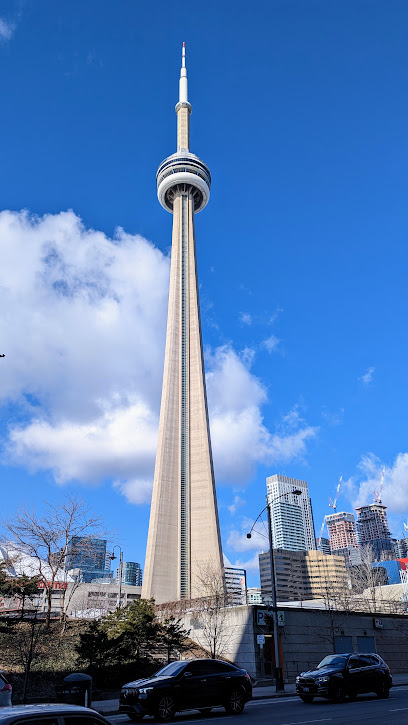
Nathan Phillips Square
Experience Toronto's vibrant heart: events, art, skating, and iconic landmarks at Nathan Phillips Square, a must-visit civic space.
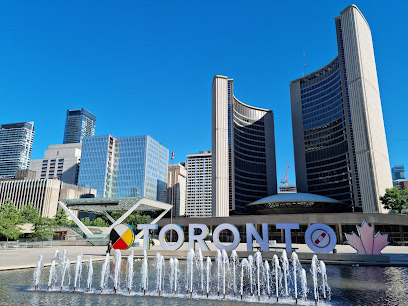
Casa Loma
Explore the majestic Casa Loma in Toronto – a captivating castle with enchanting gardens, rich history, and exciting events that will mesmerize every visitor.

The Distillery Historic District
Uncover the artistic spirit and historical charm of The Distillery Historic District, a unique pedestrian village in Toronto filled with shops and eateries.
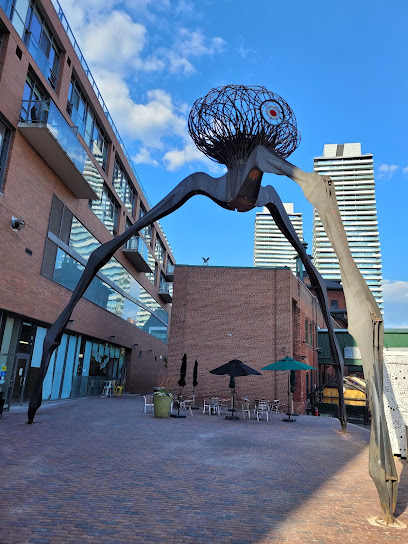
Harbourfront Centre
Experience the essence of Toronto at Harbourfront Centre, a cultural mecca for art, music, and culinary delights along the stunning waterfront.

Toronto Sign
Capture the spirit of Toronto at this iconic, colorful landmark in Nathan Phillips Square, a vibrant symbol of the city's culture and energy.
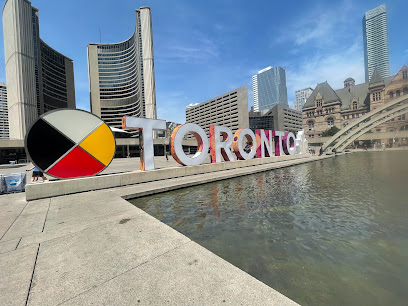
Roundhouse Park
Discover the historical and scenic beauty of Roundhouse Park in Toronto, a perfect blend of urban charm and natural tranquility.
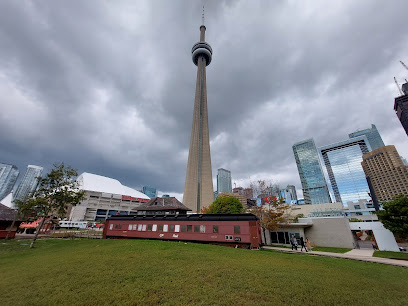
Elgin & Winter Garden Theatres
Discover the Elgin & Winter Garden Theatres, a historic double-decker venue in Toronto showcasing the best of performing arts in a captivating setting.
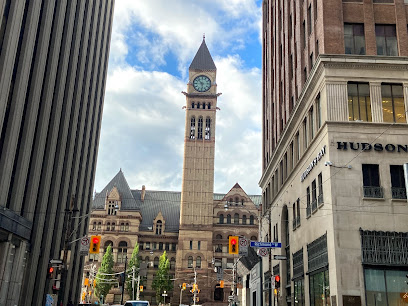
Black Creek Pioneer Village
Experience the charm of 19th-century Ontario at Black Creek Pioneer Village, where history unfolds in a captivating living museum.
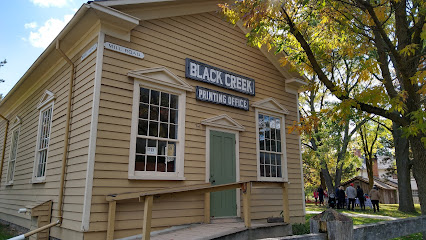
Fort York National Historic Site
Explore Toronto's origins at Fort York: War of 1812 history, original buildings, and immersive experiences in the heart of downtown.
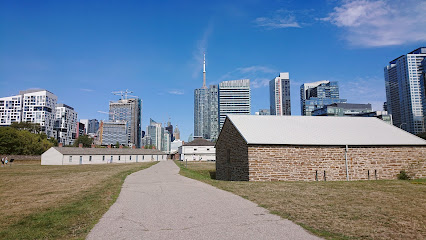
Little Canada
Explore Canada in miniature! Discover iconic landmarks and vibrant cityscapes at this unique Toronto attraction. A memorable experience for all ages.
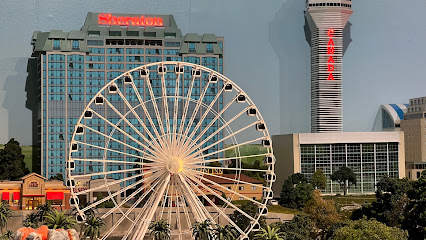
Gooderham Building
Toronto's iconic Flatiron Building: A historic landmark with stunning architecture and rich heritage, a must-see for every visitor.
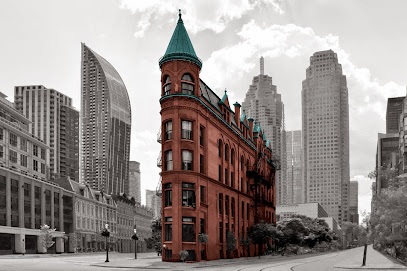
Toronto City Hall
Explore the architectural marvel of Toronto City Hall and enjoy vibrant events at the iconic Nathan Phillips Square in the heart of the city.
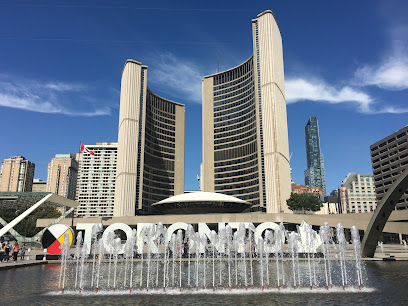
Princes' Gates
Explore the grandeur of Princes' Gates, a historical landmark in Toronto that offers a glimpse into the city's rich architectural heritage and vibrant atmosphere.
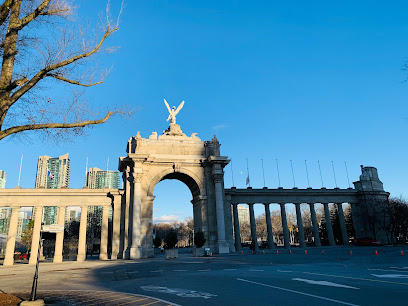
Spadina Museum
Discover the grandeur of Toronto's history at Spadina Museum, a beautifully preserved estate showcasing the opulence of the early 20th century.
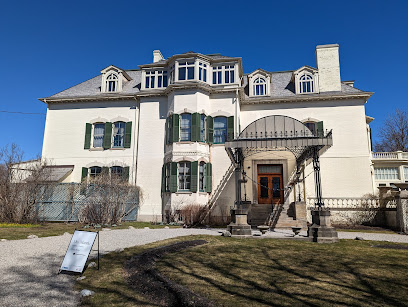
Unmissable attractions to see
CN Tower
Visit the CN Tower for breathtaking views, culinary delights, and an unforgettable experience in the heart of Toronto.
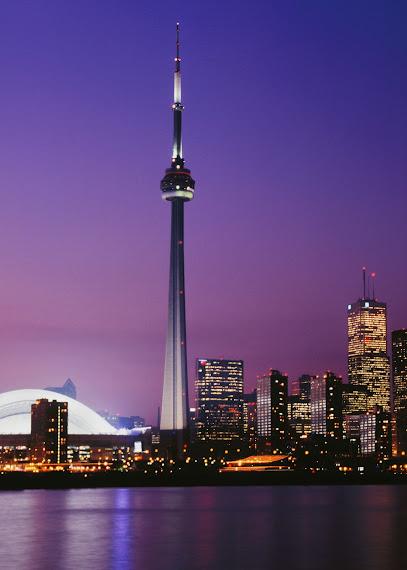
Ripley's Aquarium of Canada
Explore the vibrant marine life at Ripley's Aquarium of Canada, a top destination for an immersive underwater adventure in Toronto.
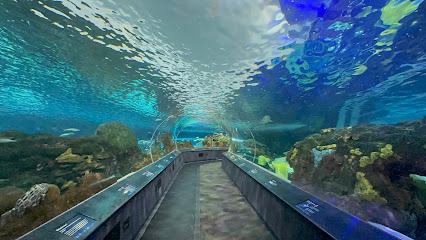
Canada's Wonderland
Discover exhilarating rides and family fun at Canada's Wonderland, Ontario's premier amusement park, with attractions for all ages and unforgettable experiences.
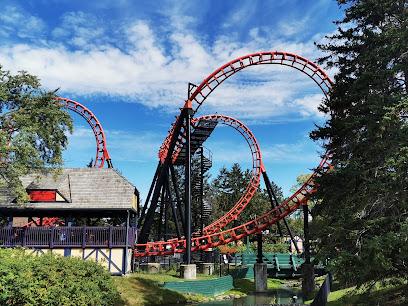
Royal Ontario Museum
Discover art, culture, and natural history at the Royal Ontario Museum, Toronto's premier destination for education and inspiration.
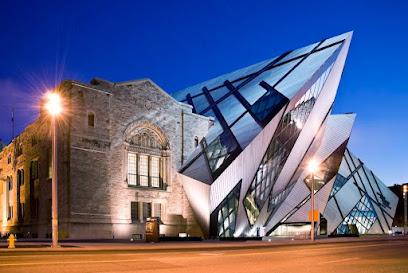
Nathan Phillips Square
Explore Nathan Phillips Square, a vibrant public plaza in downtown Toronto, known for its stunning architecture, lively atmosphere, and cultural events.
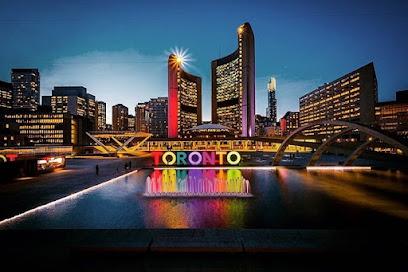
St. Lawrence Market
Explore the vibrant flavors and rich history of St. Lawrence Market, Toronto's premier destination for fresh food and local culture.
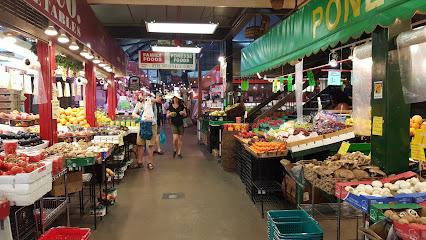
Scotiabank Arena
Experience the excitement of live sports and concerts at Scotiabank Arena, Toronto's premier venue for unforgettable entertainment.
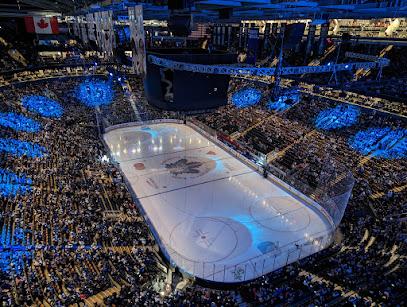
Rogers Centre
Experience the thrill of Major League Baseball at Rogers Centre, Toronto's premier stadium with a retractable roof and unforgettable events.
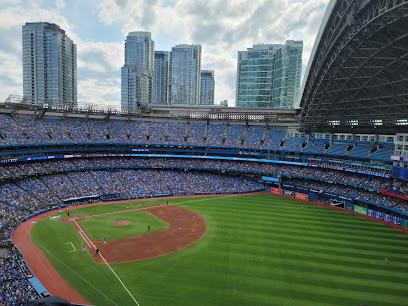
Toronto Zoo
Experience the magic of wildlife at the Toronto Zoo, a premier destination for animal enthusiasts and families visiting Toronto.
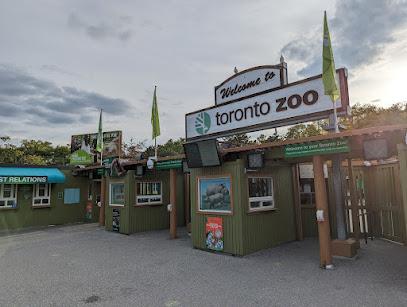
Casa Loma
Explore the stunning Casa Loma, Toronto's historic castle, featuring breathtaking architecture, beautiful gardens, and captivating exhibits in a serene setting.
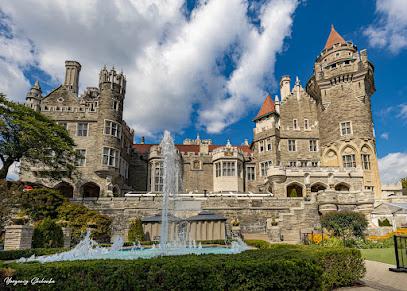
High Park
Discover the beauty of High Park, Toronto's urban oasis filled with nature, wildlife, and cultural experiences for the whole family.
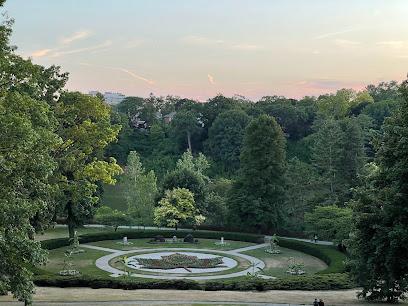
Harbourfront Centre
Explore the heart of Toronto's arts scene at Harbourfront Centre, where culture meets the waterfront in a vibrant and enriching experience.
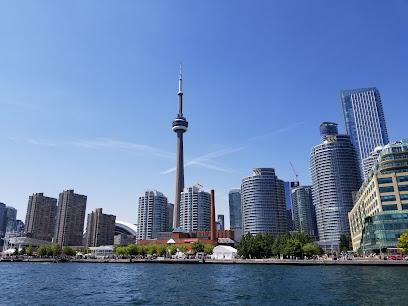
Yonge-Dundas Square
Experience the vibrant heart of Toronto at Yonge-Dundas Square, a lively plaza filled with entertainment, dining, and shopping options.

Art Gallery of Ontario
Discover the Art Gallery of Ontario - a cultural landmark housing a vast collection of art from around the world in the heart of Toronto.
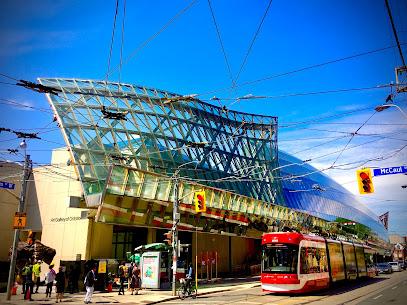
Exhibition Place
Explore Exhibition Place in Toronto, a vibrant hub of events, festivals, and attractions that showcases the city's rich culture and history.
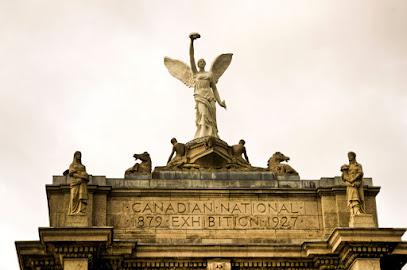
Essential places to dine
PAI
Discover authentic Thai flavors at PAI in Toronto – where every dish tells a story of culinary tradition.
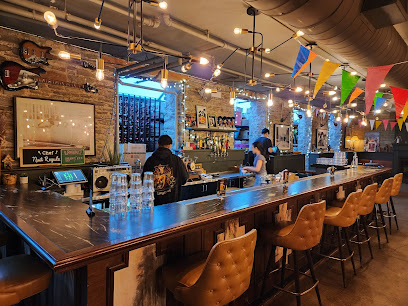
The Old Spaghetti Factory
Experience the heart of Italy in Toronto at The Old Spaghetti Factory - where every meal is a celebration of flavor.
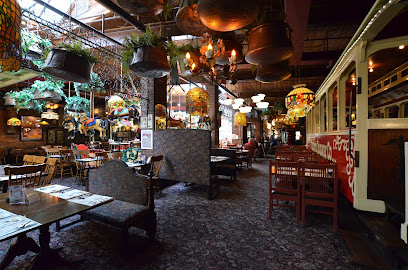
360 The Restaurant at the CN Tower
Elevate your dining experience at 360 The Restaurant in Toronto's iconic CN Tower with stunning views and exquisite Canadian cuisine.
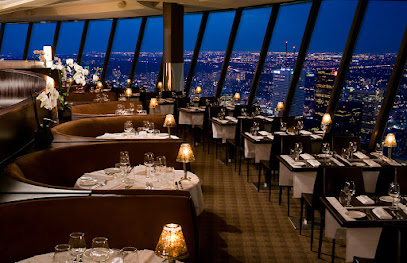
KŌST
Discover KŌST: A breathtaking Californian restaurant in Toronto offering stunning skyline views and exquisite seasonal dishes.
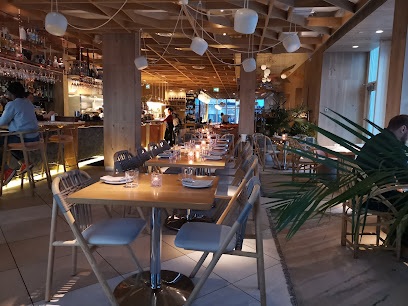
Byblos Downtown
Discover the exquisite blend of tradition and modernity at Byblos Downtown, where Middle Eastern flavors come alive in an elegant setting.
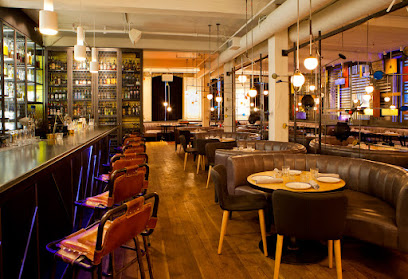
Richmond Station
Discover Richmond Station: A Premier Dining Experience Blending Canadian Flavors with Eclectic Influences in Toronto.
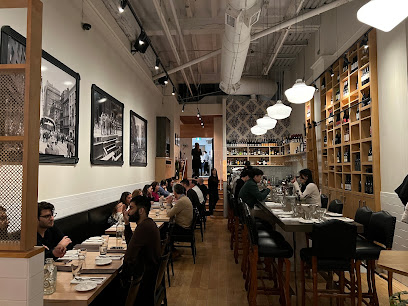
Canoe
Experience exquisite Canadian cuisine at Canoe, where stunning city views meet exceptional culinary artistry in Toronto's premier fine dining destination.
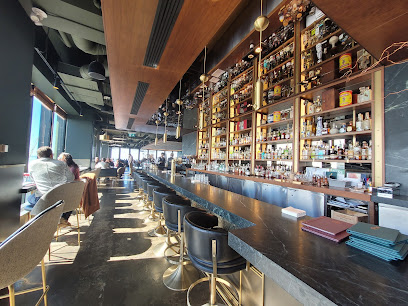
The Carbon Bar
Experience the best Southern barbecue in Toronto at The Carbon Bar - where flavor meets heritage in a vibrant setting.
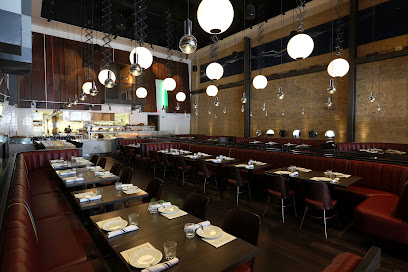
Antler Kitchen & Bar
Experience authentic Canadian cuisine at Antler Kitchen & Bar, where locally sourced ingredients meet creative culinary artistry in a cozy setting.
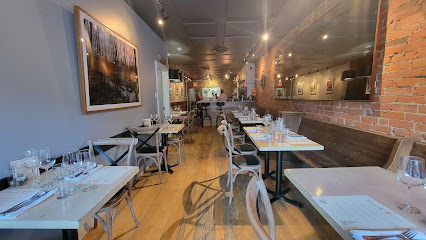
Harbour 60 Toronto
Discover unparalleled dining at Harbour 60 Toronto – where exquisite steaks meet stunning waterfront views in a luxurious atmosphere.
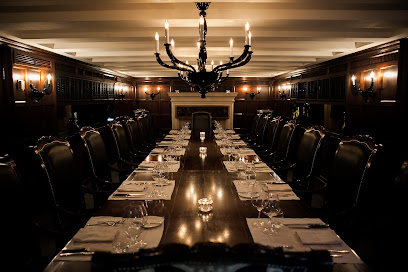
The Keg Steakhouse + Bar - Mansion
Experience upscale dining at The Keg Steakhouse + Bar - Mansion in Toronto, where exquisite steaks and elegant ambiance come together.

Figo Toronto
Experience authentic Italian flavors at Figo Toronto – where tradition meets modern culinary artistry in a vibrant atmosphere.
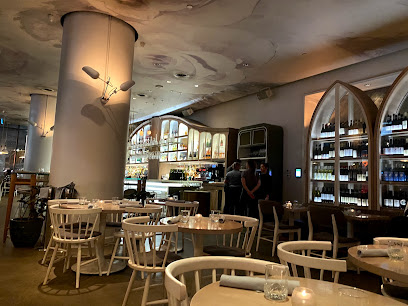
Sassafraz
Experience culinary excellence at Sassafraz in Toronto—where contemporary Canadian cuisine meets elegance and vibrant atmosphere.
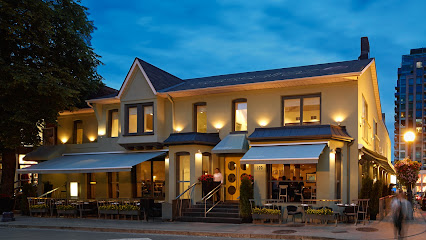
Alo
Discover the elegance of modern French cuisine at Alo, where each dish tells a story through exquisite flavors and artistic presentation.
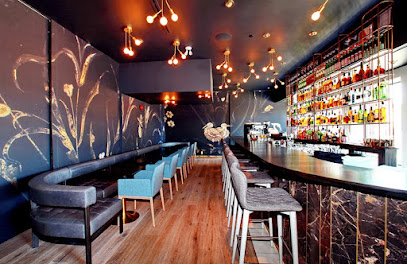
The Sultan's Tent and Cafe Moroc
Discover the enchanting world of Moroccan cuisine at The Sultan's Tent - where every meal is a vibrant cultural celebration.
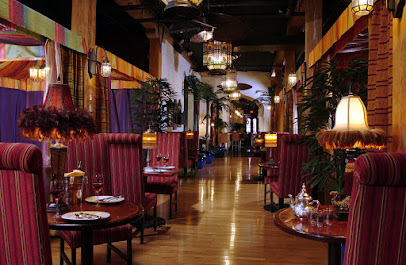
Markets, malls and hidden boutiques
Blue Banana Market
Discover a vibrant gift shop in Old Toronto offering unique souvenirs and local artisan products in a charming atmosphere.
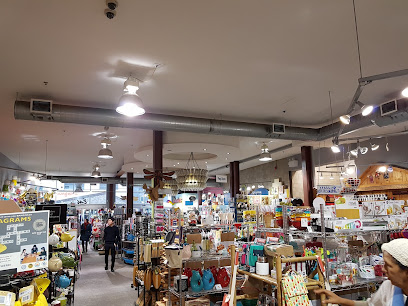
Black Market Vintage Upstairs
Explore a unique vintage shopping experience at Black Market Vintage Upstairs, where every piece has a story and style meets sustainability.
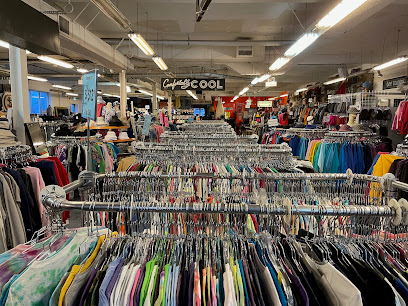
Curiosa
Explore Curiosa in Toronto for unique gifts, local crafts, and delightful surprises that capture the city's creative spirit.
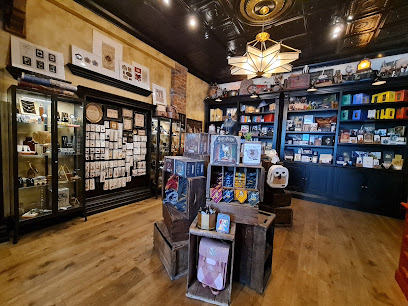
Shop404
Explore Shop404, Toronto's top gift shop, brimming with unique treasures that celebrate local artisans and creativity.
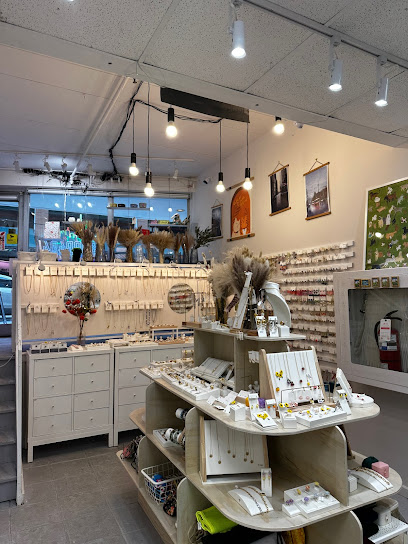
Royal Canadian Gifts
Explore the charm of Royal Canadian Gifts, a premier destination for unique souvenirs and authentic Canadian treasures in Toronto.
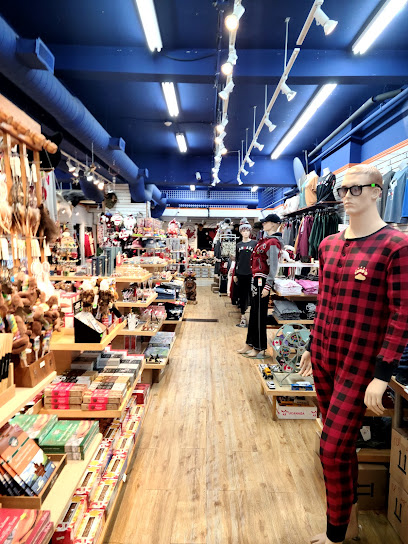
Outer Layer
Explore the whimsical charm of Outer Layer, Toronto's must-visit gift shop for unique treasures and quirky finds.
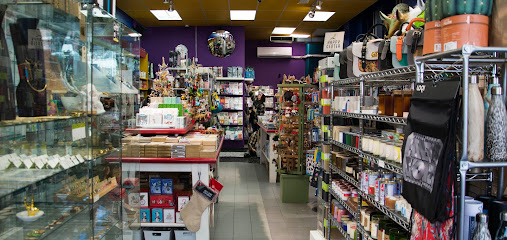
Odd Finds General Store
Explore the charm of vintage fashion at Odd Finds General Store, where every piece tells a story and uniqueness reigns supreme.
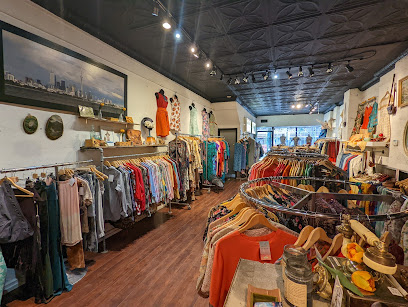
Spacing Store
Discover the essence of Toronto at Spacing Store, where local art meets unique souvenirs in a vibrant cultural setting.
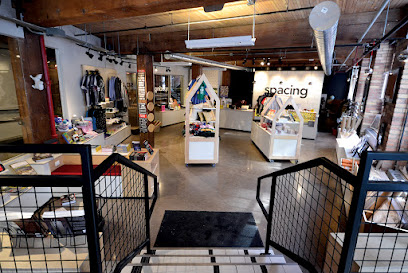
I HAVE A CRUSH ON YOU
Explore the artistic charm of I Have a Crush on You, a Toronto gift shop and art gallery offering unique treasures and local artistry.
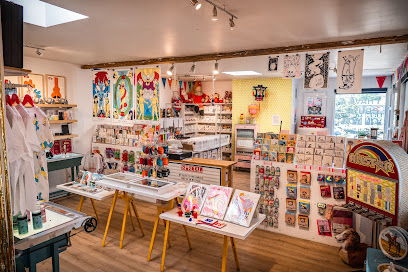
Grapefruit
Explore Grapefruit, a vibrant gift shop in Toronto offering eclectic fashion and unique souvenirs from Canadian artisans.
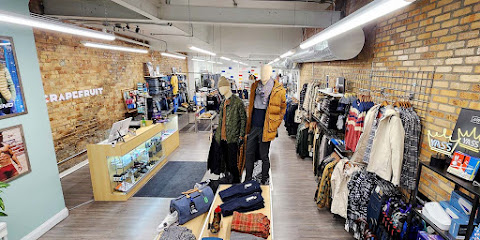
TIFF Shop
Explore the TIFF Shop in Toronto for unique film-themed gifts and collectibles that celebrate the magic of cinema.
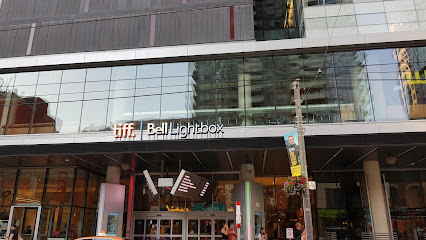
A & F Canada Gifts
Discover the essence of Canada at A & F Canada Gifts, your go-to destination for authentic souvenirs and unique mementos in Toronto.
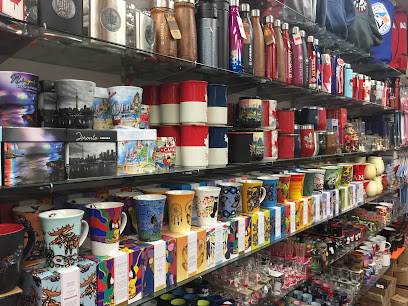
Expo
Discover unique vintage clothing treasures in Toronto's Old Town at Expo, where style and sustainability intertwine.
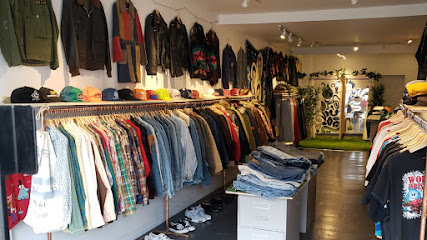
Canada Gifts
Explore Canada Gifts in Toronto for unique souvenirs and stylish home goods that embody the essence of Canadian culture and craftsmanship.
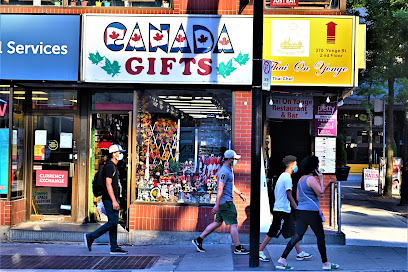
Tribal Rhythm Vintage
Explore a curated collection of vintage clothing, costumes, hats, and jewelry at Tribal Rhythm Vintage in the heart of Toronto.
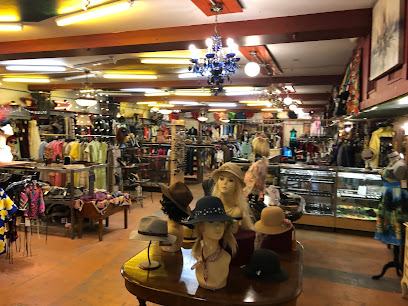
Essential bars & hidden hideouts
Bar Raval
Discover the vibrant atmosphere and exceptional flavors at Bar Raval, Toronto's premier cocktail and tapas destination.
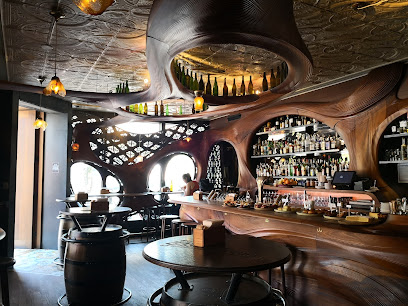
BarChef
Discover the art of mixology at BarChef, Toronto's premier cocktail bar offering innovative drinks and a chic atmosphere.
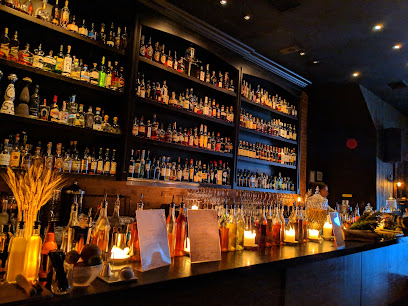
Bar Poet
Experience Toronto's vibrant nightlife at Bar Poet, where creative cocktails and delectable cuisine come together in an eclectic atmosphere.
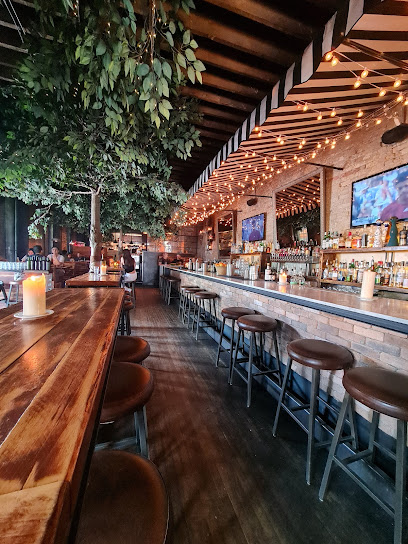
Bar Hop
Discover the vibrant atmosphere and unique flavors at Bar Hop, Toronto's premier gastropub for craft beer and gourmet cuisine.
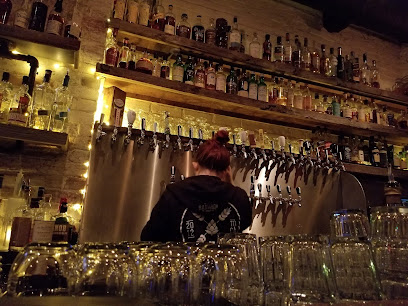
The Shameful Tiki Room Toronto
Experience the vibrant tiki culture at The Shameful Tiki Room in Toronto, where exotic cocktails and a lively ambiance await.
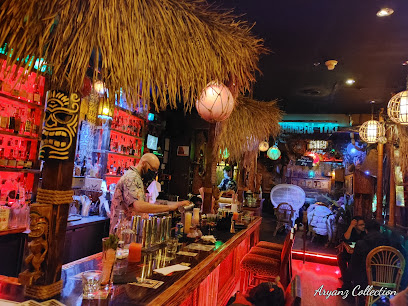
Civil Liberties
Discover the vibrant cocktail scene at Civil Liberties in Toronto, where innovative drinks and a lively atmosphere await every visitor.
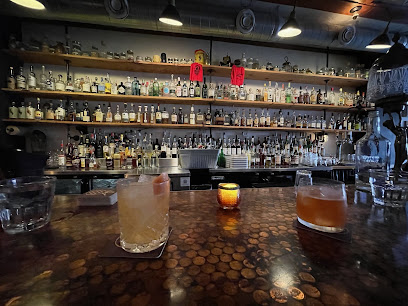
Pravda Vodka Bar
Discover the unique blend of nightlife and culinary delights at Pravda Vodka Bar in Toronto, featuring an extensive vodka selection and vibrant atmosphere.
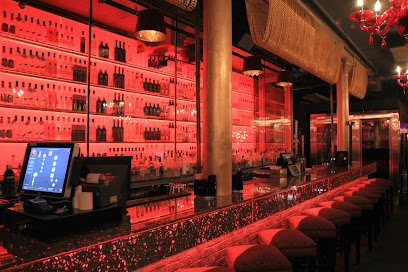
Sweaty Betty's
Discover Toronto's nightlife at Sweaty Betty's, a lively bar known for its affordable drinks, vibrant atmosphere, and welcoming community spirit.
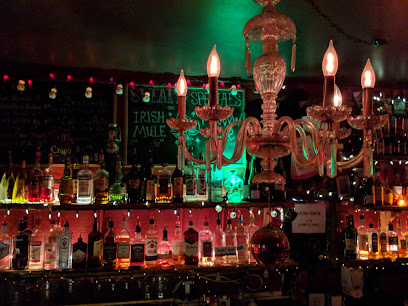
See-Scape
Experience Toronto's vibrant nightlife at See-Scape, a unique bar that combines art, live music, and delicious food in one unforgettable venue.
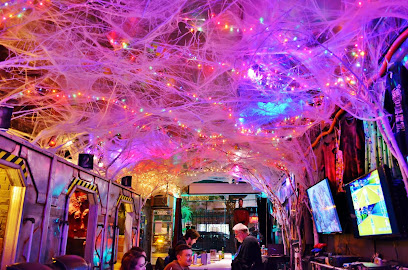
Cocktail Bar
Explore the vibrant Hoof Cocktail Bar in Toronto, where innovative mixology meets a lively atmosphere for an unforgettable night out.
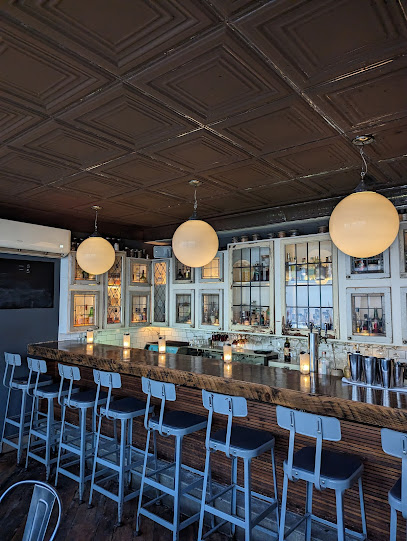
The Painted Lady
Discover The Painted Lady, Toronto's vibrant bar offering an eclectic mix of cocktails and live music in a cozy atmosphere.
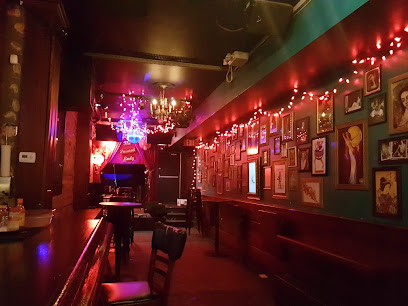
Offworld Bar
Experience the fusion of innovative cocktails and fine dining at Offworld Bar, a must-visit destination in Toronto's vibrant Queen Street West.
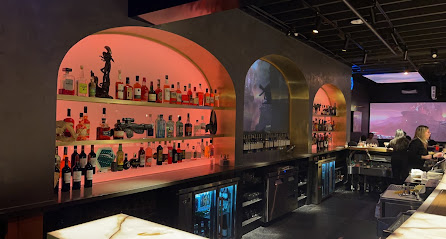
Famous Last Words
Discover Famous Last Words, Toronto's top cocktail bar offering unique drinks and a cozy atmosphere, perfect for a memorable night out.
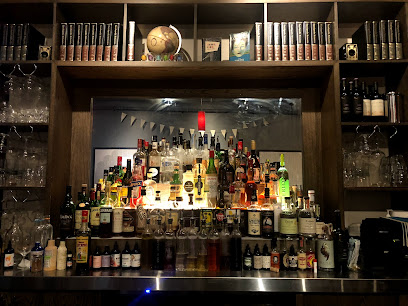
Bangarang
Discover the spirited bar scene at Bangarang in Toronto, where delicious cocktails and vibrant games create the perfect night out.
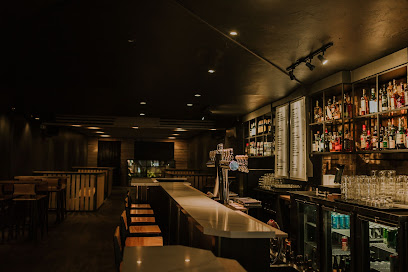
Local Phrases
-
- HelloHello
[heh-loh] - GoodbyeGoodbye
[guhd-bye] - YesYes
[yehs] - NoNo
[noh] - Please/You're welcomePlease/You're welcome
[pleez/yoor wel-kuhm] - Thank youThank you
[thank yoo] - Excuse me/SorryExcuse me/Sorry
[ik-skyoos mee/saw-ree] - How are you?How are you?
[hao ar yoo] - Fine. And you?Fine. And you?
[fain. end yoo?] - Do you speak English?Do you speak English?
[doo yoo speek ing-glish?] - I don't understandI don't understand
[ai dohnt un-der-stan]
- HelloHello
-
- I'd like to see the menu, pleaseI'd like to see the menu, please
[ai'd laik toh see thee men-yoo, pleez] - I don't eat meatI don't eat meat
[ai dohnt eet meet] - Cheers!Cheers!
[cheers!] - I would like to pay, pleaseI would like to pay, please
[ai wuhd laik toh pay, pleez]
- I'd like to see the menu, pleaseI'd like to see the menu, please
-
- Help!Help!
[help!] - Go away!Go away!
[goh uh-way!] - Call the Police!Call the Police!
[kawl thee puh-leece!] - Call a doctor!Call a doctor!
[kawl uh dawk-ter!] - I'm lostI'm lost
[aim lawst] - I'm illI'm ill
[aim il]
- Help!Help!
-
- I'd like to buy...I'd like to buy...
[ai'd laik toh bahy...] - I'm just lookingI'm just looking
[aim jehst look-ing] - How much is it?How much is it?
[hao much iz it?] - That's too expensiveThat's too expensive
[thats tooh ek-spensiv] - Can you lower the price?Can you lower the price?
[kan yoo loh-er thee prahys?]
- I'd like to buy...I'd like to buy...
-
- What time is it?What time is it?
[wut taim iz it?] - It's one o'clockIt's one o'clock
[its wuhn uh-klok] - Half past (10)Half past (10)
[haf past (ten)] - MorningMorning
[mawrn-ing] - AfternoonAfternoon
[af-ter-noon] - EveningEvening
[ee-ven-ing] - YesterdayYesterday
[yes-ter-day] - TodayToday
[toh-day] - TomorrowTomorrow
[tuh-maw-row] - 11
[wuhn] - 22
[too] - 33
[tree] - 44
[fohr] - 55
[fahyv] - 66
[siks] - 77
[sev-uhn] - 88
[eyt] - 99
[nahn] - 1010
[ten]
- What time is it?What time is it?
-
- Where's a/the...?Where's a/the...?
[wehrz uh/thee] - What's the address?What's the address?
[wuts thee uh-dres?] - Can you show me (on the map)?Can you show me (on the map)?
[kan yoo shoh mee (on thee map)?] - When's the next (bus)?When's the next (bus)?
[wenz thee nekst (buhs)?] - A ticket (to ....)A ticket (to ....)
[uh tik-it (toh ....)]
- Where's a/the...?Where's a/the...?
History of Toronto
-
Long before European settlers arrived, the area now known as Toronto was inhabited by Indigenous peoples, including the Huron-Wendat, Haudenosaunee, and Mississaugas of the Credit First Nation. For thousands of years, these communities thrived here, establishing trade routes, social structures, and spiritual practices deeply connected to the land.
-
In 1793, British Lieutenant Governor John Graves Simcoe founded the town of York on the northern shore of Lake Ontario. Chosen for its strategic location, York quickly became an important military and trading post. The town was named in honor of Prince Frederick, Duke of York and Albany.
-
During the War of 1812, York was a significant battleground between British and American forces. In April 1813, American troops captured and burned much of the town, including the Parliament Buildings. The event had lasting impacts on the community and highlighted York's strategic importance in the region.
-
On March 6, 1834, the town of York was incorporated as the City of Toronto. The name 'Toronto' is derived from a Mohawk word meaning 'where there are trees standing in the water.' With this incorporation, Toronto began its transition from a colonial outpost to a burgeoning urban center.
-
On April 19, 1904, a devastating fire swept through Toronto's downtown, destroying over 100 buildings and causing significant economic loss. The Great Fire of 1904 led to stricter building codes and fire regulations, catalyzing the modernization of the city's infrastructure.
-
The Toronto Purchase of 1787-1805 was a land agreement between the British Crown and the Mississaugas of the Credit. The transaction was controversial due to misunderstandings and disputes over the boundaries and compensation. In 2010, a settlement was reached, with the Canadian government compensating the Mississaugas for the disputed land.
-
Throughout the 20th century, Toronto experienced significant growth driven by waves of immigration. The city became a mosaic of cultures, languages, and traditions, enriching its social fabric. This diversity is evident in Toronto's vibrant neighborhoods, festivals, and culinary scene.
-
Completed in 1976, the CN Tower was the world's tallest free-standing structure and tallest tower until 2007. It is an iconic symbol of Toronto and a marvel of modern engineering. The tower offers panoramic views of the city and attracts millions of visitors each year.
-
Toronto is Canada's financial capital, home to the Toronto Stock Exchange (TSX) and the headquarters of the country's major banks and financial institutions. The financial district's growth has solidified Toronto's position as a global financial hub.
-
In 2015, Toronto hosted the Pan American Games, the third-largest international multi-sport event. The games brought together athletes from across the Americas and left a lasting legacy of sports infrastructure and community engagement.
Toronto Essentials
-
Toronto is served by Toronto Pearson International Airport (YYZ), the largest and busiest airport in Canada. It is located about 22.5 kilometers northwest of Downtown Toronto. Various airlines operate flights to and from Pearson, connecting Toronto to major cities worldwide. Downtown Toronto can also be accessed via Billy Bishop Toronto City Airport (YTZ), which is located on the Toronto Islands and caters mainly to regional flights. For those traveling by train, Union Station is the city's primary rail hub, with services from VIA Rail, Amtrak, and GO Transit. Major highways, including the 401, 400, and the QEW, also connect Toronto to neighboring cities and regions.
-
Toronto has an extensive public transportation system operated by the Toronto Transit Commission (TTC), which includes subways, streetcars, and buses. The PRESTO card is a convenient way to pay for fares across the TTC, GO Transit, and other regional transit services. Taxis and ride-sharing services like Uber and Lyft are readily available throughout the city. For those who prefer biking, Toronto offers a bike share program called Bike Share Toronto, with numerous docking stations across the city. Walking is also a viable option, especially in downtown and other pedestrian-friendly areas.
-
The official currency in Toronto is the Canadian Dollar (CAD). Credit and debit cards are widely accepted at most businesses, including hotels, restaurants, and shops. Contactless payments like Apple Pay and Google Wallet are also commonly used. ATMs are plentiful throughout the city, and currency exchange services are available at the airport, major banks, and exchange bureaus. It is advisable to carry some cash for small purchases and in case you visit places that do not accept card payments.
-
Toronto is generally considered a safe city for tourists. However, like any large city, it is important to stay vigilant. Areas like Jane and Finch, Regent Park, and Moss Park have higher crime rates and should be approached with caution, especially at night. Petty crimes like pickpocketing can occur in crowded areas, so always be aware of your surroundings and keep your belongings secure. Stick to well-lit and populated areas, especially after dark.
-
In case of an emergency, dial 911 for immediate assistance from police, fire, or medical services. Toronto has several hospitals and urgent care clinics, including Toronto General Hospital and St. Michael's Hospital, which provide high-quality medical care. Pharmacies such as Shoppers Drug Mart and Rexall are widely available for minor health issues and over-the-counter medications. Having travel insurance that covers medical emergencies is highly recommended.
-
Fashion: Do dress in layers as Toronto weather can be unpredictable. Casual wear is generally acceptable, but dress more formally for upscale restaurants and theaters. Religion: Do respect religious customs and dress modestly when visiting places of worship. Public Transport: Do stand on the right and walk on the left on escalators. Don't eat or drink on the TTC. Greetings: Do greet people with a handshake or a smile. Canadians are generally polite and friendly. Eating & Drinking: Do try local delicacies such as poutine and butter tarts. Tipping is customary in restaurants, usually around 15-20%. Don't forget to say 'please' and 'thank you,' as manners are important.
-
To experience Toronto like a local, explore neighborhoods such as Kensington Market, Distillery District, and Queen Street West for unique shops, eateries, and street art. Attend a Toronto Blue Jays baseball game or a Toronto Raptors basketball game for a taste of local sports culture. Take a stroll along the Toronto Waterfront or rent a kayak to explore Lake Ontario. Visit local farmers' markets like St. Lawrence Market for fresh produce and artisanal goods. Don't miss out on the vibrant cultural scene by checking out live music venues, theaters, and art galleries.
Trending Landmark in Toronto
Nearby Cities to Toronto
-
Things To Do in Niagara Falls
-
Things To Do in Buffalo Town
-
Things To Do in Buffalo
-
Things To Do in Rochester
-
Things To Do in Erie
-
Things To Do in Ithaca
-
Things To Do in Syracuse
-
Things To Do in Youngstown
-
Things To Do in Cleveland
-
Things To Do in Detroit
-
Things To Do in Akron
-
Things To Do in Ottawa
-
Things To Do in Frankenmuth
-
Things To Do in Canton
-
Things To Do in Pittsburgh



















